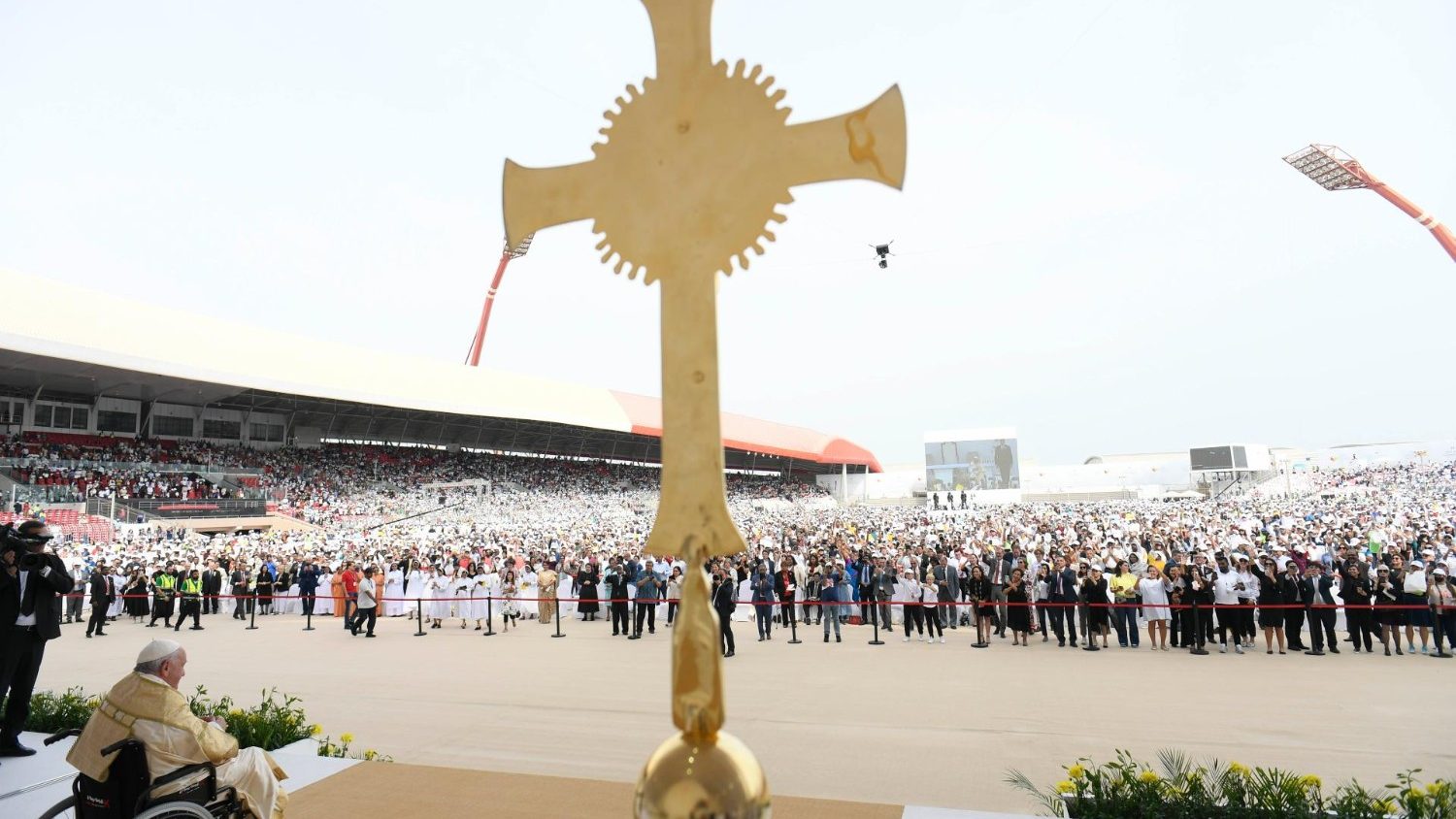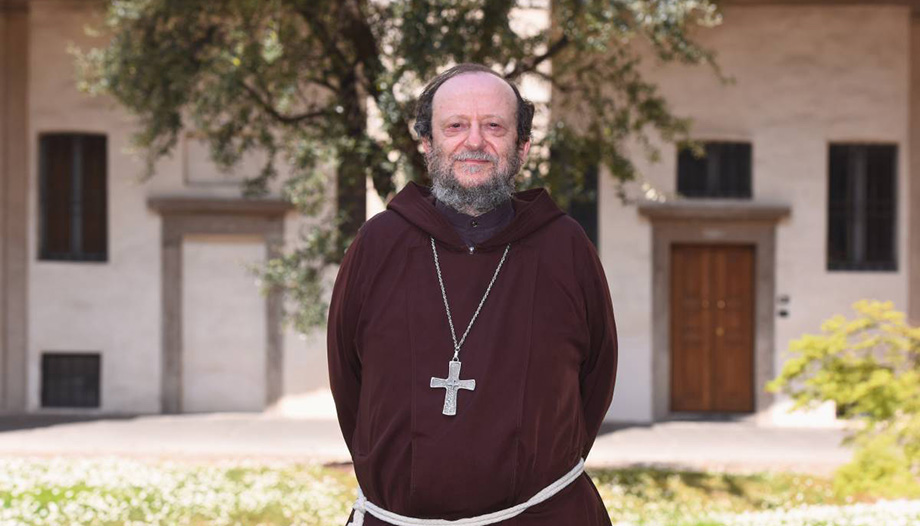Joaquim Magalhães de Castro
The Church in the Vicariate of South Arabia is basically a ‘Church of migrants’ whose members share a common experience: this unpleasant feeling that something fundamental is missing in their daily lives, be it their homeland or the presence of loved ones. However, this seemingly negative perception must be seen first and foremost as an opportunity to open ourselves to one another and, at the same time, to bring to light the source and dynamism of Christian hope, “a hope that does not disappoint us because it is rooted in the love of Christ, an irrevocable love, a love that lasts forever”, as the Franciscan Capuchin Bishop Paolo Martinelli, Apostolic Vicar of South Arabia, writes in a pastoral letter addressed to the Catholic communities of the Vicariate of Southern Arabia – Oman, Yemen and the United Arab Emirates.
Bishop Paolo Martinelli points out the characteristic factors – pilgrimage and hope – that characterise the Jubilee period, highlighting the many common points that migrants and pilgrims share: “Today we are called to be pilgrims of hope; and a pilgrim goes through the adversities of life knowing that God never abandons him. Being pilgrims refers us to the condition of migrants. Like pilgrims, migrants are always on the move”. The existence of this ‘Church of migrants’ in the Arabian Peninsula, which brings together believers from a hundred different nations, depends on the stability of the jobs that its faithful have and on a vast array of circumstances that are beyond their control. “It is precisely this situation of migrants that impels us to play with greater passion the role of being pilgrims of hope,” said the Italian prelate, citing the Bull Spes non confusat, in which the Pope asks for signs of hope for migrants who leave their lands behind in search of a better life for themselves and their families. “And these expectations of theirs,” warns the Holy Father, “must never be frustrated by prejudices and rejections.”

The Apostolic Vicar of Southern Arabia invites all his faithful to face their “migrant reality” as part of a personal pilgrimage “towards the Kingdom of Heaven,” continually sustained by Christian hope. “We are made for eternal happiness; let us not be deceived by temporary goods,” concludes Archbishop Paolo Martinelli. Bishop Martinelli takes the opportunity to recall the 1700th anniversary of the Council of Nicea, which gave us “the Creed, which we recite every Sunday” and which is still recognized today by all Churches and denominations of Christianity. “Celebrating the Nicene Creed has great ecumenical value; it spurs us to work to promote unity among all Christians.”
The Apostolic Vicar of Southern Arabia invites all his faithful to live this Holy Year of hope with great vigour and I encourage them to participate in the programmes and events prepared by the Vicariate, especially in the churches already declared ‘Jubilee shrines’ and in some of the international events planned for Rome.
In a world where secularization is increasingly advancing, true interreligious dialogue is the only antidote to a world without God. This was recalled by Cardinal Luis Antonio Gokim Tagle, Pro-Prefect of the Dicastery for Evangelization – Section for First Evangelization and New Churches – in a speech given in Abu Dhabi during the award ceremony of the ‘Zayed Prize for Human Fraternity’. This prize was created in 2019, following the signing of the document ‘Human Fraternity for World Peace and Living Together’, signed on 4 February of that year in the capital of the United Arab Emirates by Pope Francis and the Grand Imam of Al-Azhar, Sheikh Ahmed al-Tayyeb. Six years after this historic signing, at the ‘Abrahamic Family House’, a structure also created after the publication of the aforementioned document, Cardinal Tagle, as a representative of the Holy See, assured those present that the Catholic Church recognizes and defends the promotion of friendship and respect between men and women of different religious traditions, highlighting how important these elements are today, “since, on the one hand, and in a certain sense, the world has become ‘smaller’, and, on the other, because the phenomenon of migration has increased contact between people and communities of different traditions, cultures and religions”. In fact, whenever we follow this path, the path outlined by the Document on Human Fraternity, we become ever more authentically human, emphasized the Pro-Prefect of the Dicastery for Evangelization, recalling that in secularized societies, where “religion is seen as something useless or even dangerous, and it is often thought that coexistence is only possible if people relegate their own religious affiliation to the purely private sphere or meet in ‘neutral’ spaces, devoid of any reference to the transcendent”, dialogue is in fact the only solution viable.


 Follow
Follow


